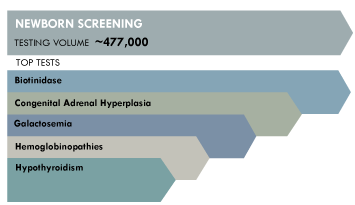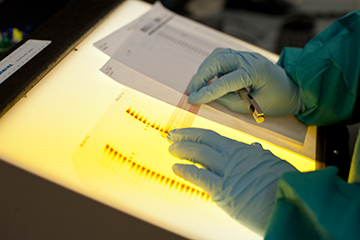DIVISION
Newborn Screening
The Newborn Screening section identifies infants at risk for more than 50 inherited diseases by testing a small blood spot obtained from a simple heel-stick shortly after birth. At this age, most infants with an inherited condition show no obvious signs of disease. However, with special tests, the Newborn Screening Program can identify an infant who may be at risk, and alert the doctor and caregivers of the need for special medical treatment for the infant.
With early diagnosis and medical treatment, complications from these serious, but uncommon, conditions can usually be prevented. The goal is to identify the disorder before the problem has time to cause damaging health effects.
The Iowa Newborn Screening Program is a collaborative effort between the Department of Public Health, the State Hygienic Laboratory, the University of Iowa Children’s Hospital and Central Delivery Service of Iowa. In addition to Iowa, the program provides newborn screening for North Dakota and South Dakota.

Major achievements:
